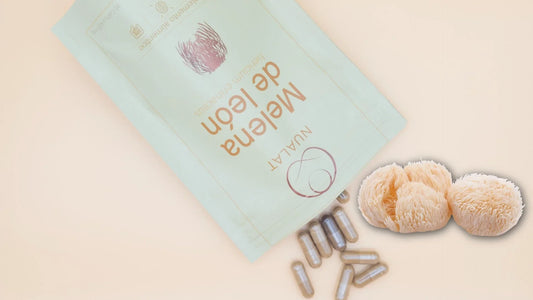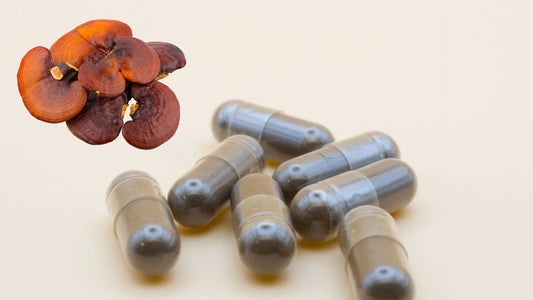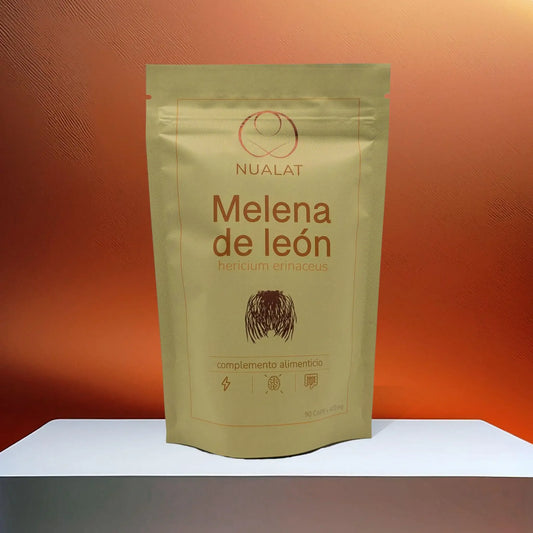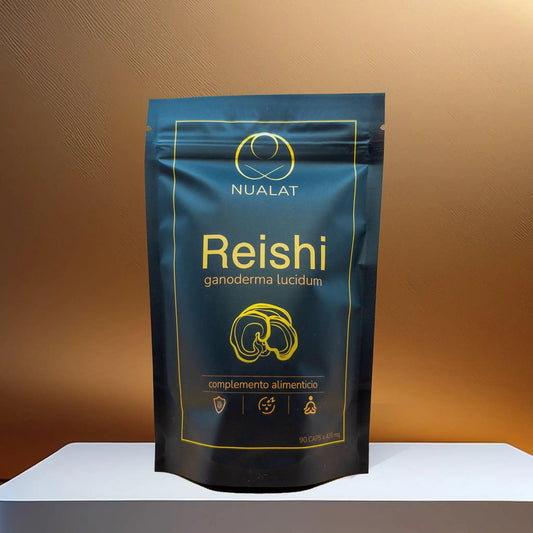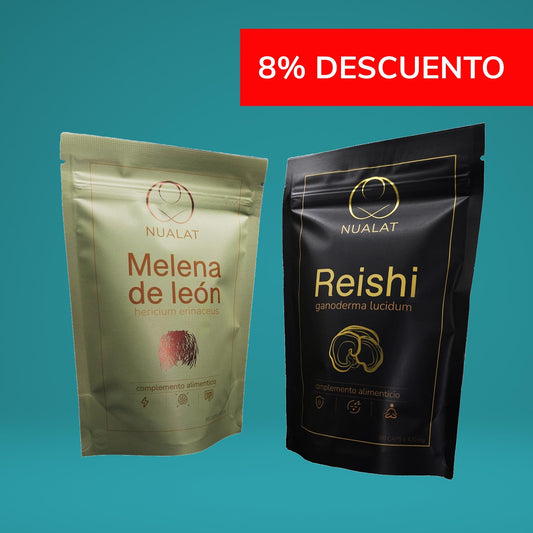
The benefits of medicinal mushrooms for the immune system
Share
Medicinal mushrooms have captured the attention of the scientific community for their ability to positively influence the human immune system. Since ancient times, these mushrooms have been used in various cultures to prevent and treat diseases, and today, modern research has begun to unravel the biological mechanisms that explain their immunomodulatory properties.
One of the keys to the immunological benefits of medicinal mushrooms lies in their polysaccharides, specifically β-glucans. These bioactive molecules interact with the receptors of immune cells, such as macrophages and dendritic cells, stimulating a balanced immune response. When activated, these cells improve their ability to recognize and eliminate pathogens, while promoting controlled inflammation, essential for fighting infections without damaging one's own tissues (Wasser, 2011).
Reishi, also known as Ganoderma lucidum, is a mushroom notable for its regulatory effect on the immune system. Its triterpenes and polysaccharides have been studied for their ability to reduce oxidative stress and modulate the production of cytokines, the molecules responsible for communication between immune cells. Studies have shown that consuming reishi can increase the activity of NK (natural killer) cells, which are essential for fighting tumor cells and viruses (Sliva, 2003). Furthermore, research has indicated that this mushroom has significant antioxidant properties, which help mitigate cellular damage caused by free radicals and support cellular longevity (Paterson, 2006).
On the other hand, Lion's Mane (Hericium erinaceus) is primarily known for its neuroprotective effects, but it also has important implications for immunity. Research suggests that its bioactive compounds can stimulate the proliferation of T and B lymphocytes, crucial cells in the adaptive immune response (Li et al., 2018). Furthermore, Lion's Mane appears to play a role in regulating the gut microbiome, a fundamental component of the immune system, as a healthy gut is the first line of defense against external pathogens. Recent studies have explored how this fungus can positively influence the integrity of the intestinal barrier, reducing the risk of chronic inflammation and improving the absorption of essential nutrients (Ding et al., 2020).
A fascinating aspect of medicinal mushrooms is their ability to act as immunomodulators, rather than simply boosting or suppressing immunity. This means they can help balance an overactive immune system, as in autoimmune diseases , or strengthen it when it's weakened, as occurs in people with recurrent infections or chronic stress. For example, research has shown how the polysaccharides in these mushrooms can induce apoptosis of harmful cells while preserving the health of normal cells, an essential feature in the treatment of various pathologies (Zhu et al., 1999).
During periods of prolonged stress, such as winter, when the immune system tends to weaken, medicinal mushrooms can play an essential role. Their adaptogenic action helps regulate cortisol levels and other stress markers, which not only benefits the immune system but also overall hormonal balance. In this context, Reishi stands out for its calming properties and its ability to improve sleep quality, while Lion's Mane contributes to mental clarity and maintains homeostasis in situations of high physical and mental demand (Sullivan et al., 2006).
At NUALAT, we are committed to offering medicinal mushroom supplements that preserve the purity and potency of these extraordinary organisms. Our Reishi and Lion's Mane extracts are carefully crafted to ensure optimal bioavailability and maximum benefit for your immune system. Add these mushrooms to your daily routine and take a step toward holistic well-being.


